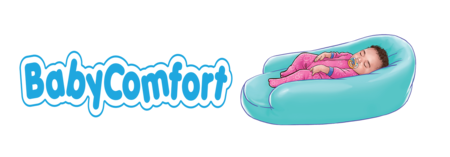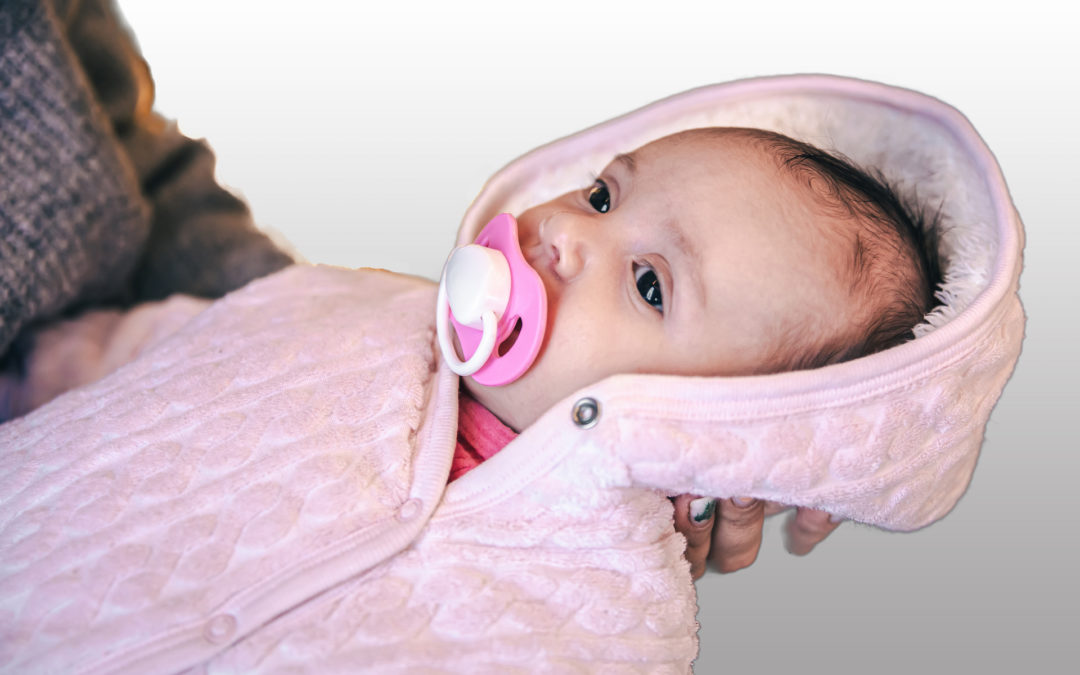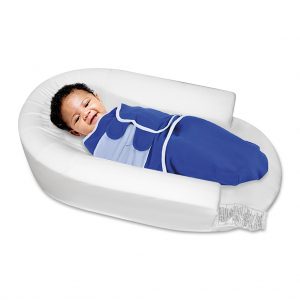TO PACIFY OR NOT TO PACIFY?
A few weeks ago, I was in this room at the hospital, doing my daily round of certifying newborn babies as healthy or otherwise. I was at the bedside, and as usual, I placed my stethoscope on a baby and she screamed as if I’d just plunged a scalpel into her chest.
I glanced at the mother. She had a scowl on her face and was staring at me like I was an evil villain. Her eyeglasses reminded me of Owlett, one of the superhero characters in PJ mask, from the Disney Junior channel. Her super sharp owl vision was fixed on my every move and I felt like Romeo the villain scientist, trying to program the baby into a robot.
The poor baby wasn’t going to act like anyone’s robot today. She flayed up her hands and insisted she could shriek like a cat. I tried to shoo her, but her screams only got more frantic.
I had to do something—fast, before I lose my job.
I reached into my lab coat’s pocket, pulled out my ready super pacifier, tore off its plastic wrap, and shoved it into the baby’s mouth. Stunned, the baby whimpered for a few seconds as she contemplated the rubber in her mouth, then she stopped crying and started sucking passionately on the dummy.
And there was peace in the world again … or so I thought, until I looked up and mommy Owlett’s eyes were now shooting super-fast balls at me. It seemed she was about to fly over in her pajamas the next moment to sweep up her baby from evil Romeo and save the day.
That’s when I remembered my nurse saying that this particular mother had said, “I’ve done my research.” The patient had also written in her birth plan that no artificial nipple or pacifier should be offered to her baby. This memory melted every mean grin on my cheek. But it was now too late, and the crime had already been committed. So I hurried through my exam of listening to the baby’s heart and lungs.
As soon as I was done, I clumsily swaddled the baby, pulled out the pacifier from the baby’s mouth—She didn’t cry immediately. Thank God! I quickly handed her back to her mother.
The baby soon started crying in her mother’s arms. She tried rocking the baby but the baby insisted she wasn’t going to be anyone’s robot today.
How could I salvage my job now that I’ve made both mother and baby upset? I didn’t want a bad review when the hospital eventually sends the mother a survey about her hospital experience.
I thought about offering the pacifier again, but I was still hurting from those super-fast fireballs, so I suggested instead, “Maybe she’s still hungry?”
“Yes.” She nodded and placed the baby on her breast. After a few seconds, there was peace in the world again. The breastfeeding super-hero mother finally saved the day.
I thought about the pacifier again. Maybe I should educate her about its pros and cons? Yes, it wasn’t in her birth plan, but she doesn’t know that I know that. Maybe I should just ask her about her objections to artificial nipples, thereby admitting I was an evil villain earlier, and then educate her about pacifiers afterward?
Mothers ultimately have the right— or what we call, autonomy, to decide how to care for their baby as long as it causes no harm. I knew as the villain, that I had to apologize first.
“I’m sorry,” I said timidly, “I had to give her the pacifier so that I could properly listen to her lungs and heart,” I explained.
“It’s okay,” she said. But the persistent frown on her brow told me she wasn’t pacified.
“I understand you’re trying to breastfeed,” I continued, “…and don’t want the pacifier to interfere with your breastfeeding?”
“It’s okay.” She nodded. “I just don’t want her to have nipple confusion.”
I nodded as well, knowing I wasn’t getting a bad review anymore. I really wanted to tell her that most of us healthcare workers don’t believe in the myth that pacifiers cause nipple confusion. But I said nothing. I’d have to save that discussion for a better time. Perhaps her nurse, an older lady and grandmother, who had breastfed as well, may be the better person to educate her about pacifiers. This was my patient’s first baby. I was certain she would be a great mother who would eventually learn from experience.
I was learning as well, that my patients would have a better hospital experience, if I respect their boundaries and allowed them to learn from their own experience, rather than having my opinion and pacifier shoved down their throats.
ACHIEVING WORLD PEACE: ONE PACIFIER AT A TIME.
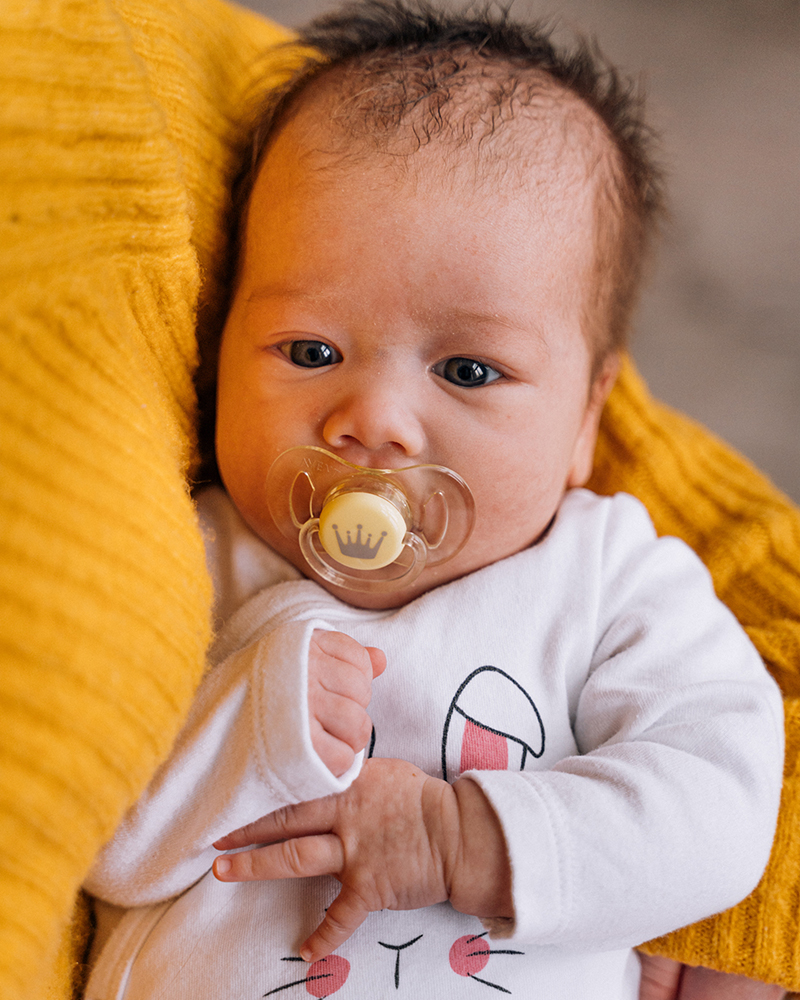
This world would be a better place if we all learned to respect boundaries. There are times for the pacifier, and there are times that the better way to pacify is to hold back the pacifier.
But for all you pregnant first-time mothers, who are still researching and yet to write out a birth plan, here is what I have to say about pacifiers.
This world would be a better place if we all learned to pacifier.
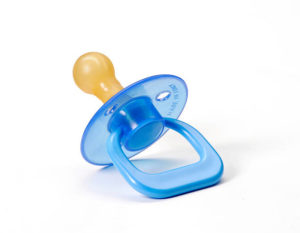
Pacifier are great at keeping babies calm.
Ten reasons to give your baby a pacifier.
- They help babies practice and coordinate their sucking and swallowing.
- They soothe and pacify a baby when fussy. They are called pacifiers for a reason.
- They calm babies and help them sleep longer. Mothers also get to sleep better.
- They decrease your baby’s risk of sudden infant death, (SIDS)
- They prevent spitting up and reflux. The constant sucking of the mouth transfers to the muscles of the throat and down to the food pipe and causes regurgitated milk to move back into the stomach. See image.
- They act as a better alternative to thumb sucking and thus prevent babies from sucking their thumbs. Once thumb sucking is established, it’s very difficult to break this habit.
- They prevent babies from over-feeding, especially bottle-fed babies—when a 1-month-old baby is acting hungry even though he just finished a 4 oz bottle, then a pacifier will calm that baby.
- They sometimes help resolve an episode of hiccups. Not always, but sometimes.
- They help calm a baby crying from colic.
- They help mothers to prevent nipple crack from constantly using their nipples as a pacifier.
There are times for the pacifier…
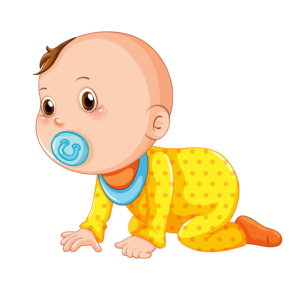
and there are times to hold back the pacifier.
Common objections to pacifier use.
- Nipple confusion and interference with breastfeeding.
Claim: Babies will prefer the pacifier to the mother’s nipple and this will stop breastfeeding.
- Affects dental/teeth development.
Claim: Pacifiers will cause your baby’s teeth to develop poorly.
- Some infants become too dependent on the pacifier.
Claim: Your child will become too dependent on the pacifier.
- Pacifiers cause colic and gassiness.
Claim: Your child will become colic from the pacifier.
Addressing the common objections
1. Nipple confusion and interference with breastfeeding.
Claim: Some mothers argue that babies will prefer the pacifier to the nipple and this will stop breastfeeding.
Newborn babies have an innate sucking reflex. This means that babies will suck on anything placed into their mouths. This includes pacifiers, your mother’s nipple, or your little pinky finger. Try it out. However, when it comes to which one a baby will prefer, the mother’s nipple will always be the preferred option. Why? Because the pacifier or your pinky finger does not provide any milk to the baby.
Even when the nipple is empty of milk or colostrum, any newborn will still prefer a warm mother’s nipple to a pacifier. When a baby is using your nipple as a pacifier, the baby’s cheek and face are also in contact with the breast which feels warm; the baby can also hear your breathing and heartbeat which is soothing to a baby, but a pacifier provides no such benefits.
So if there’s any nipple confusion, the mother’s nipple will always win and the baby will always prefer a mother’s nipple because of all these other benefits other than milk that a rubbery pacifier cannot provide. Because of this, is it advisable to use your nipple as a pacifier initially, but if you feel the need you may also use the pacifier without worrying that the nipple will win out.
Often, when a newborn baby is having problems latching onto the mother’s nipple on the first day of life, the problem isn’t usually because the nipple feels different from the pacifier, the problem is because the baby is sleepy.
Sometimes, a preterm baby may have a weak sucking reflex and the pacifier may actually allow such babies to practice this suck and swallow coordination, which later helps them to better nurse on the nipple.
2. Affects dental/teeth development.
Claim: Pacifiers will cause your baby’s teeth to develop poorly.
This is also not necessarily true, but most pediatric dentists recommend removing the pacifier between 15-18 months and keeping it no later than 2 years of age. At this time, your child’s teeth are still milk teeth and still developing and this should not affect long-term dentition. However, If you keep the pacifier longer than 4 years, your child’s teeth is more likely to be affected by the pacifier. Conversely, if your child is thumb-sucking, this will affect the dentition as well.
3. Some infants become too dependent on the pacifier.
Claim: Your child will become too dependent on the pacifier.
I think this isn’t a problem with the pacifier, this is a parenting issue. The alternative to pacifiers for the most infant is thumb sucking. Which is a worse habit that is harder to stop. You can always take away the pacifier as a parent, but you cannot take away a child’s finger.
If your child is dependent on the pacifier after the age of two, the easy fix is to get rid of the pacifier. The child may whine for a day or two, but after a few days, the child will forget about the pacifier and move on with life. I doubt if your child will be able to purchase one unaided.
4. Pacifiers cause colic and gassiness.
Claim: Your child will become colic from the pacifier.
This claim is also not true. Colic isn’t due to swallowed air during sucking, unless your baby’s pacifier has a hole in it, the baby isn’t going to swallow air enough to cause discomfort with a pacifier.
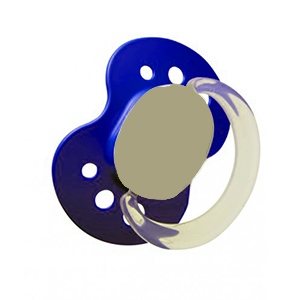
In summary, pacifiers are great at keeping a baby calm. However, like any other useful tool, there’s a time to offer the pacifier and there’s a time to withhold it. Always remember, as a mother, you’re the expert on your baby, we’re only here to offer suggestions.
Your Baby’s Comfort is Our Mission

Andrew Faniku MD
Andrew is a committed family man and pediatrician who is focused on improving your baby's comfort. In his spare time, he writes short stories and makes acrylic paintings.He is also learning to use social media. Please connect with him on social media.
